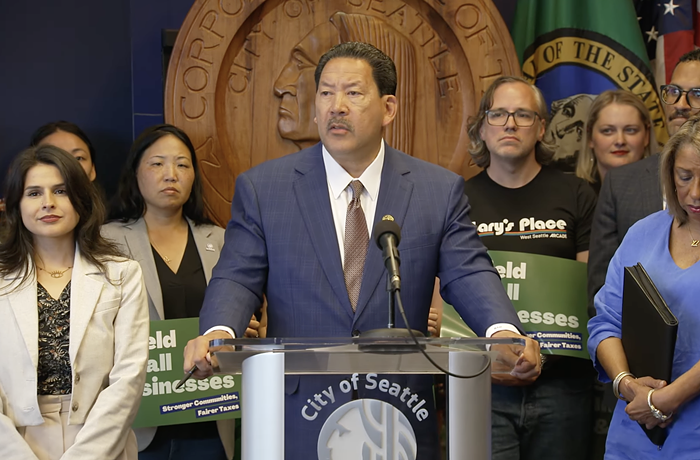Seattle Mayor Bruce Harrell and Seattle City Councilmember Alexis Mercedes Rinck's Shield Tax Initiative will lower the Business & Occupation Tax for 90 percent of Seattle businesses, and shift the burden to big businesses like Amazon. The new tax is expected…
Why it matters
- The Shield Tax Initiative aims to alleviate financial pressure on small businesses in Seattle.
- By redistributing tax responsibilities, larger corporations like Amazon will bear a greater share of the tax burden.
- The initiative is expected to foster a more equitable economic environment within the city.
In a significant move to support small businesses, Seattle Mayor Bruce Harrell, alongside City Councilmember Alexis Mercedes Rinck, has introduced the Shield Tax Initiative. This new tax policy is designed to reduce the Business & Occupation Tax (B&O Tax) for a staggering 90 percent of the city's local enterprises, thereby easing the financial strain on smaller businesses while reallocating the tax burden towards larger corporations, particularly tech giants such as Amazon.
The Shield Tax Initiative comes as a response to the ongoing challenges faced by local businesses, especially in the wake of the economic upheaval spurred by the COVID-19 pandemic. Many small business owners have reported difficulties in maintaining profitability, and the city has recognized the need for a policy that not only supports these entities but also promotes a more balanced economic landscape.
Under the new framework, small businesses will benefit from a significant tax reduction, allowing them to reinvest in their operations and better serve their communities. This initiative is expected to bolster local economies, encouraging growth and sustainability among smaller enterprises that form the backbone of Seattle's vibrant commercial scene.
The redistribution of the tax burden will see larger corporations, particularly those with substantial revenues, contribute a larger share of taxes. By targeting companies like Amazon, which have historically enjoyed favorable tax conditions in the city, the Shield Tax Initiative seeks to correct disparities that have existed in the tax structure. This approach aims to create a fairer environment for all businesses, ensuring that larger entities contribute appropriately to the public services and infrastructure that support the entire community.
Seattle’s move is not without precedent; cities across the nation have been exploring similar tax reforms to address the challenges posed by the dominance of major corporations. The city council's decision to push forward with the Shield Tax Initiative signifies a growing trend towards prioritizing local businesses and creating equitable economic opportunities.
Advocates for the initiative argue that by lightening the tax load on smaller businesses, more jobs can be created, and existing jobs can be preserved. Small businesses are often seen as the heart of local economies, fostering community engagement and providing unique products and services that reflect the character of their neighborhoods. The Shield Tax Initiative is thus positioned not only as a financial relief measure but also as a catalyst for community development and resilience.
While the city anticipates positive outcomes from this initiative, there are concerns regarding the potential implications for larger businesses. Critics argue that increasing taxes on major corporations could lead to adverse effects, such as reduced investment in the city or the potential for job losses if companies decide to relocate to more tax-friendly environments. However, proponents maintain that a balanced approach that holds larger businesses accountable is essential for fostering long-term economic health.
The Shield Tax Initiative is set to undergo further discussions and evaluations as it moves through the legislative process. As Seattle continues to navigate the complexities of economic recovery, the successful implementation of this initiative could serve as a model for other cities striving to support their local businesses while ensuring that larger corporations contribute fairly to the community.
In conclusion, the Shield Tax Initiative represents a bold step forward for Seattle in its quest to create a more equitable economic landscape. With significant tax reductions for the majority of local businesses and a renewed focus on the responsibilities of larger corporations, this initiative has the potential to reshape the city’s business environment, fostering growth, innovation, and community engagement in the years to come.











